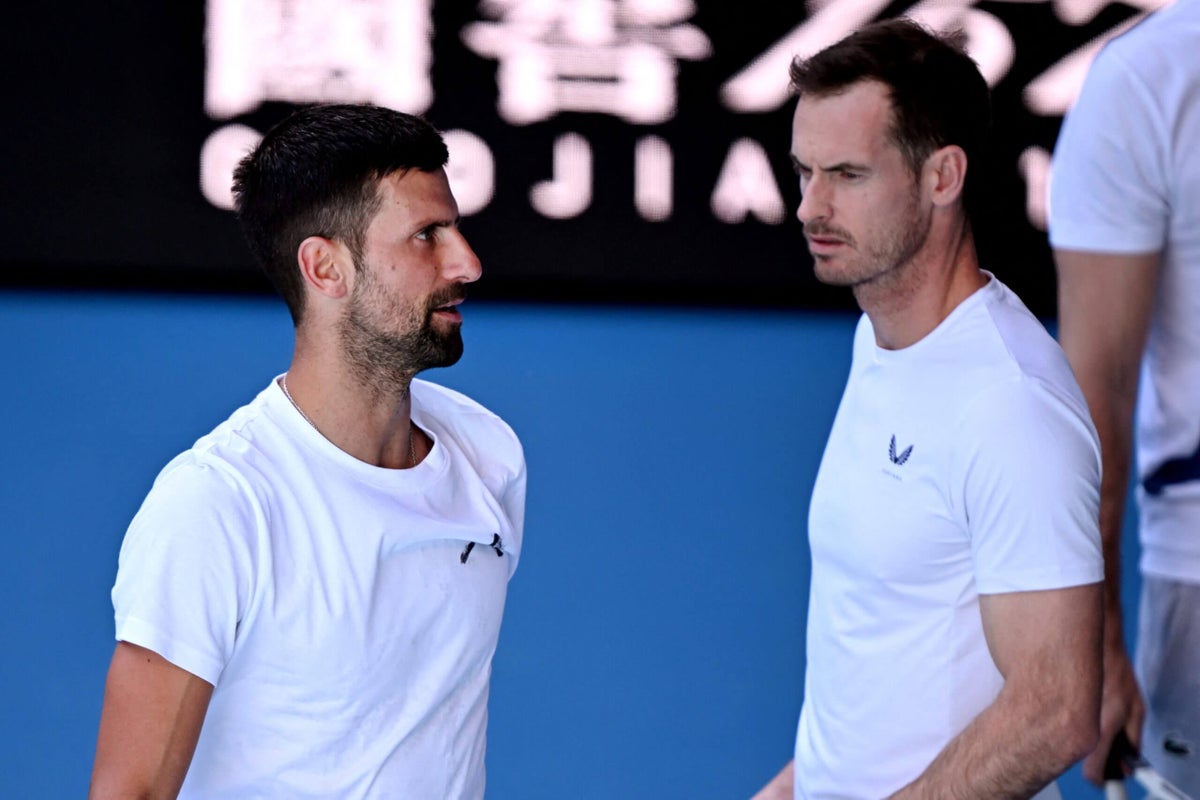Editor’s Note: This story is a part of Peak, The Athletic’s new desk covering leadership, personal development and success through the lens of sports. Peak aims to connect readers to ideas they can implement in their own personal and professional lives. Follow Peak here.
The idea didn’t sound hard at the beginning: For one week, I would try to mimic Bobby Witt Jr.’s daily routine to see what I could learn about one of baseball’s biggest stars.
Witt, the Kansas City Royals’ 24-year-old shortstop who finished second in MVP voting last year, maps out his days in advance, making sure to weave in time to journal or listen to a motivational message or meditate. He aims to accomplish anywhere from 10 to 15 daily “habits,” and every day he checks them off in an app on his phone. After talking with Witt’s mental performance coach, Brian Cain, I settled on three of Witt’s habits I’d try for a week: calling a success hotline and listening to a podcast each morning, journaling and meditating.
However, I soon realized that following Witt’s routine was a little more demanding than I thought it would be.
While I was only attempting a watered-down version of his routine for one week, I struggled to keep up. I set reminders to complete my daily tasks, thinking it would be easy to quickly knock them out during the day.
But life started to pile up in the ways it often does. One night, my friend called and we caught up for an hour; another night I worked later than usual, and before I knew it, it was late and I still had habits to complete. Every day, unexpected things like that popped up that threw me off schedule. And I was trying to finish just three simple tasks a day; Witt often aims for way more.
At one point, I thought: How does he do this?
For Witt, the secret is in understanding why you’re doing it.
“You just got to be motivated to it and know that there’s a reason why these (other) guys are so great,” he said. “You got to stick to it. It’s a long season, and you also got to know that your mind is a big part of it.”
Sure, but there’s a huge difference between creating a routine and creating a habit. So later, I called Cain again to share my experience.
“Let’s paint the clear picture that this is work,” Cain said. “Bobby works as hard on himself as he does at the game of baseball. Not everybody wants to do that.”
One of the most frequently called numbers in Witt’s phone is a hotline that leads him directly to the voice of Dr. Rob Gilbert, a college professor at Montclair State University in New Jersey.
You’ve reached the success hotline. I’m Dr. Rob Gilbert. Today’s message …
For 10 years, Witt has dialed 973-743-4690 in the morning to hear a pre-recorded three-to-five-minute motivational message.
Cain, Witt’s mental performance coach, who has called the hotline since 2006, views it as a “micro-decision” to try to get better each day. When the two met years ago, Cain pointed out to Witt that he was aware of the wrong things. Instead of honing in on stats and numbers, Cain told him, it could be more beneficial to lock in on specific habits.
That’s how it started. Now the two share a calendar filled with blueprints, all aimed toward carrying Witt closer to the skills he wants to master.
“It’s allowed him and helped him stay consistent and stay present,” Cain said. “And it’s just gotten better as it goes on. The relentless pursuit of getting one percent better.”
Calling the success hotline is first on a long list of “micro-decisions” for Witt. I called the hotline on a Monday morning and was greeted by a surprisingly enthusiastic voice telling me that I have all the right abilities; I just need to make sure I have a well-defined plan.
“Strategy beats strength,” Dr. Gilbert cheered through the phone.
It was a concept I thought about on and off for the rest of the day.
Cain had told me that the hotline is one of two phone numbers he has memorized, the other being his wife’s. We laughed about that, yet I clung to that comment as I called each day, wanting to know why he and Witt believed in the hotline so much.
To me, it became an enforcer. Instead of scrolling on my phone when I woke up or spending too much time on one part of my morning, calling the hotline each day gave me structure and a sense of purpose from the moment my morning started.
But as the days went on, I realized that the hotline and podcast were the easy parts.
When I told Cain I wanted to try some of Witt’s routine for myself, the first thing he did was text me a link to an app called HabitShare.
“It allows you to get out of your head and onto paper,” he explained. “Or out of the clouds and into the dirt.”
The app is where Witt’s goals live as part of an organized checklist he follows daily, and Cain views it as a way to visually stay aware of your lifestyle.
“I feel like anybody who wants to be an elite performer, one of the best things that you can do is identify, ‘What does your ideal day look like?’” Cain said.
He explained that the goal is to have your day be structured but never rigid. “Structured means: ‘I’m going to have an a.m. routine that I’m going to do in the morning before I leave to go to the field or before I start my work day.’ Rigid means: ‘It has to happen every day at 4:45.’ ”
But Cain did say it’s important to remain diligent with how much flexibility you give yourself. While you might miss a day every once in a while, Cain called missing two in a row “habit suicide,” a reference to James Clear’s bestselling book, “Atomic Habits.”
“If you miss one, you have to make sure that the next day you’re extra disciplined, extra on top of it,” Cain said.
There’s a larger reason behind this. Witt has been living by this mental performance routine for around 10 years.
“There’s never been a tipping point moment for him, it’s just a relentless consistency of moments,” Cain said.
The backbone of Witt’s career is these small habits he completes every day. He’s been doing this long enough to know that if his habit completion isn’t translating into performance on the field that week, the best answer is simply more consistency.
“You do it every day, and it’s just one of those things where it kind of becomes muscle memory,” Witt said.
Last year, his third in the major leagues, Witt turned in one of the greatest seasons in Royals history: 32 home runs, 31 steals, 45 doubles, a Gold Glove and a Silver Slugger Award.
“The goal is to try and win as many of those little moments as he can,” Cain said. “And when you look at all those moments stacked together, that’s what makes a great season like he had last year. And that’s what makes a great career.”
Listening to encouraging messages is one thing, but setting aside time each day for exercises like visualizing and journaling can be tough, especially when not all days look the same. And while I did my best at staying consistent, I kept returning to the same thought the entire week: How does Bobby have 10 to 15 habits, when juggling three of these feels like a lot?
Cain said something about Witt’s journey with mental performance that stuck with me.
“Don’t think about climbing the mountain; think about taking the next step,” he said. “And you don’t have to be great at the start, but you do have to start to be great.”
As I inched closer to the weekend, knowing I was traveling to Philadelphia to be with friends, I started to get a little nervous. When was I going to find time to do mental imagery?
Maybe it was the competitive side in me coming out, but as I continued to complete my habits each day, I didn’t want to let outside factors mess that up. Now, to be clear, I ended up missing one of my mental imagery sessions while on the trip. But the words “habit suicide” whirled around in my head afterward, and I knew I had to bounce back.
This might sound funny, but it almost felt like a grind to keep up with my routine amidst all the other plans I had each day. I chatted with Cain about whether anyone can make this lifestyle work or if you have to be a specific kind of person. He said, “Excellence is a decision that anyone can come to.”
“It’s the start that stops most people,” he added. “You just have to meet yourself where you’re at.”
Still, during my week imitating Witt’s routine, something became clear: Just how disciplined Witt must be to live this way.
“Understand that it’s not one giant decision that you make that can completely change your life,” Cain said. “Ask yourself, ‘Is this decision taking me one step closer to where I want to go or one step further away from where I want to be?’ ”
It’s a question Witt answers day after day after day.
Elise Devlin is a writer for Peak, The Athletic’s new desk covering leadership, personal development and success. She last wrote about Jordan Chiles, Aly Raisman and the benefits of mutual mentorship. Follow Peak here.
(Illustration: Eamonn Dalton / The Athletic; Greg Fiume / Getty Images)




